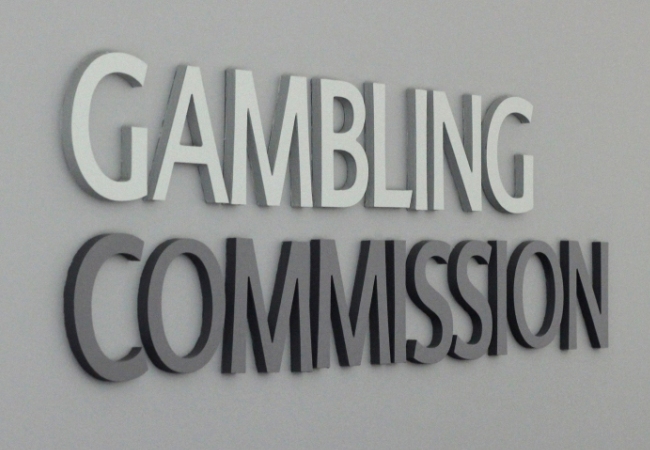The Gambling Commission has issued a warning to white label providers after agreeing on a settlement with FSB.
The Gambling Commission has warned white label companies that they are considered responsible for the actions of their clients after ordering FSB to pay £634,000 due to regulatory failings related to the management of its “subsidiary licensed” partners.
In August 2019, the UK regulator launched an investigation into FSB Technology’s license due to regulatory concerns. The investigation was launched after one of FSB’s partners was forced offline after a newspaper made allegations against the site. The paper accused the business of several offences including advertising on sites that offered pirated content.
The Commission said the investigation was launched under section 116 of the Gambling Act which gives the regulator the power to launch an investigation if it suspects a company is in breach of its licensing conditions.
What the investigation found
The Commission identified several regulatory failings by businesses operating white label sites under FSB’s UK gambling licence. These failings related to marketing, social responsibility and anti-money laundering processes.
The investigation found that the supplier did not have an adequate level of oversight of its white label partners’ activities.
The Commission said: “We found that whilst FSB did have contractual arrangements in place with its ‘white label’ partners, it did not take sufficient action to ensure they were following the Licence Conditions and Codes of Practice (LCCP).
“In addition, FSB had not carried out sufficient due diligence prior to entering into and for the duration of these contractual arrangements with third-party partners to ascertain the suitability of them.”
Following the investigation, FSB agreed a settlement with the regulator, which will see it pay £600,000 to fund the National Strategy to Reduce Gambling Harms and an additional £34,000 to cover the investigation costs.
On top of the settlement, before entering a relationship with a third-party partner, FSB must “conduct risk-based due diligence with a view to mitigate risk to the Licensing Objectives.” These checks must be carried out at least once a year.
The Gambling Commission identified multiple breaches of LCCPs, including condition 12.1.1 (2) and (3), which require “compliance with the prevention of money laundering and terrorist financing”.
FSB accepted that it failed to carry out “appropriate risk-sensitive policies, procedures and controls relating to the management of its third-party partners and customers.” FSB also acknowledged that documentation and audit trails for anti-money laundering (AML) were not sufficient and its compliance and AML teams were not adequately trained.
The suppler also acknowledged that suitable account reviews were not in place to monitor white label operators re-opening customer accounts.
The investigation noted an instance where one customer gambled and lost approximately £282,000 over an 18-month period without providing adequate information on the source of the funds. One white label site also failed to maintain oversight of VIP players as the company’s VIP manager had no AML training.
FSB was also found to have breached license condition 16.1.1, which covers the responsible placement of digital adverts and those placed by affiliates. The investigation found an “inappropriate” banner ad that contained cartoon nudity for a site operating under FSB’s licence. The online ad was found on a site that provided pirated content.
FSB also breached Social Responsibility Code Provision 3.5.3, which requires operators to remove the names and details of self-excluded players from marketing databases. However, a white label site operating under FSB’s licence sent a marketing email to 2,324 self-excluded players.
However, the suppler informed the regulator of the error and said that if a customer responded to the email they would not have been allowed to gamble as normal self-exclusion measures were already in place.
Due diligence failings
The investigation also found that FSB failed to carry out adequate due diligence of its white label partners. The Commission noted an example where a white label agreement with a company for gambling services under the brand name of an “international gambling operator not licensed to offer gambling facilities to the British market.”
The Commission said that FSB entered the agreement despite the ownership of the company, and the company’s relationship with the brand name was unclear.
The Commission said: “FSB found that the complexities of the international corporate structure between companies and websites made the cost of doing due diligence enquiries financially punitive. It subsequently accepted that this position was a reason not to enter into the relationship at all, not a reason to explore arrangements such as the described business licence agreement.”
The regulator said this white label agreement has now been terminated.
The Gambling Commission said that FSB has since implemented an “improved system of due diligence and oversight” which includes the recruitment of new compliance staff, a review of white label partners and ending business relationships where appropriate. However, the Commission said that the “serious nature” of the breaches highlight the need for other licensees to take full responsibility for third-party partners.
What the Commission said
Richard Watson, Commission Executive Director, said: “All operators should pay close attention to this case as it shows that we hold all licensees fully responsible for third party relationships – and we will act against any of our licensees that do not manage third parties appropriately.
“These were blatant breaches of rules we have put in place to ensure gambling is fair, safe and crime-free.”






